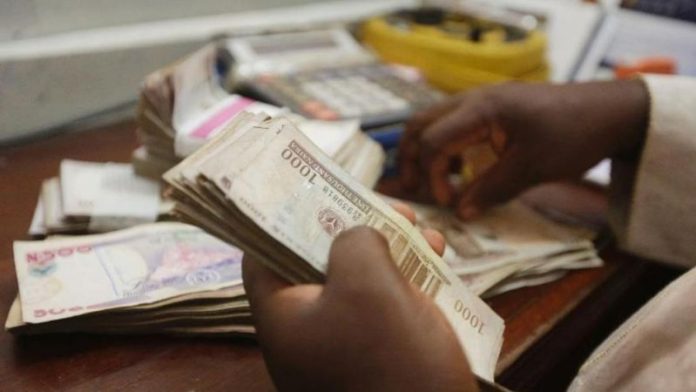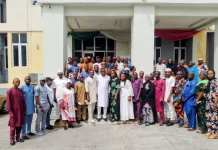The Nigerian naira demonstrated further strength against the US dollar, closing at N750.14/$1 at the official market.
The recent upswing in the naira’s value has been met with optimism by financial analysts, who attribute it to the Central Bank of Nigeria’s (CBN) initiative to clear a portion of its foreign exchange (FX) backlog, a move intended to instill confidence in the national currency.
Data from the Nigerian Autonomous Foreign Exchange Market (NAFEM), the official platform for forex trading, indicates a 5.55% appreciation in the domestic currency, closing at N750.14 to a dollar at the end of Monday’s business hours. This marks a substantial gain of N41.61 or a 5.55% increase compared to the Friday closing rate of N791.75. The intraday high reached N1121/$1, while the intraday low was N740.08/$1, reflecting a significant spread of N380.92/$1.
According to NAFEM data, the forex turnover at the close of trading stood at $176.75 million, representing a 12.02% decline compared to the previous day’s figures.
The naira also experienced marginal gains in the parallel forex market, where unofficial trading occurs. The exchange rate appreciated by 0.44%, quoted at N1135/$1, while peer-to-peer traders quoted around N1141.52/$1.
The recent move by the Central Bank of Nigeria to clear the backlog of foreign exchange forward contracts has been identified as a key factor contributing to the naira’s positive trajectory. This development is expected to bring relief to the naira, the business community, and the broader economy.
Nigeria has grappled with persistent dollar shortages since the exit of foreign investors from local assets during a period of low oil prices. The central bank’s efforts to meet the demand for dollars from foreign investors and airlines have faced challenges, hindering liquidity in the FX market.
The central bank’s actions align with the finance minister Wale Edun’s announcement on October 23, revealing expectations of $10 billion inflows to enhance liquidity in the FX market. The move to clear backlogs is seen as a positive development for local lenders, particularly benefiting the manufacturing sector, which has struggled to procure raw materials and machinery.
Gabriel Idahosa, deputy president of the Lagos Chamber of Commerce and Industry, emphasized that the CBN’s efforts not only bring back letters of credit but also restore confidence in the traditional market, attracting portfolio investors, international airlines, and potential foreign direct investments.













